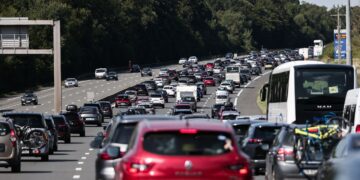Digital driving licences are set to be introduced this year, marking a significant step forward in the realm of technology and transportation. This new system will allow drivers to store their driving licence digitally on their smartphones, eliminating the need for physical cards. The move is part of a wider initiative to digitize various forms of identification and documentation, streamlining processes and reducing the use of paper.
The implementation of digital driving licences is expected to bring a range of benefits, including increased convenience and security for drivers. With their licence stored on their phone, individuals will no longer have to worry about carrying around a physical card that can be lost or damaged. In addition, the digital format is expected to make it easier for authorities to verify the authenticity of licences, reducing the risk of fraud.
The move towards digital driving licences reflects the growing trend towards digitalization in various sectors. As technology continues to advance, more and more aspects of daily life are being digitized, from banking and shopping to healthcare and government services. By introducing digital driving licences, authorities are keeping pace with these developments and ensuring that their services remain relevant and accessible to the public.
While the shift towards digital driving licences may raise concerns about privacy and security, authorities have emphasized that strict measures will be put in place to safeguard personal information. The digital licences will be encrypted to protect against unauthorized access, and users will have to go through a secure verification process to access their licence on their phone.
Overall, the introduction of digital driving licences represents a significant step forward in the modernization of the transportation sector. By embracing digital technology, authorities are not only improving efficiency and convenience for drivers, but also setting a precedent for the future of identification and documentation. As technology continues to evolve, it is likely that digital driving licences will become the norm, replacing traditional paper licences in the years to come.
































































